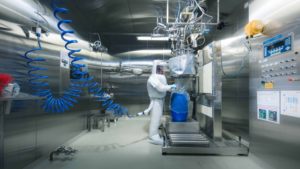
Is getting specialised smart? Europe is going to find out.
Europe has a wealth of talent and skills embedded in its regions, skills which are highly diverse and usually associated with a long history of trade and culture.
The latest regional development policy one that will underpin future structural fund spending is Smart Specialisation and it is coming to a region near you soon. What does that have to do with me? I hear you cry. I’m a scientist and wouldn’t know a regional policy if it bit me! However, this is likely to impact everyone in the sector, particularly if you are an SME and rely on regional funds as part of your income. In a nutshell, ‘smart specialisation’ is a strategy for building commercial strength through an integrated approach to regional development that draws on a region’s strengths. Regions have to submit a ‘smart specialisation’ plan to the EC, and you can bet your bottom dollar (or euro) that you are going to see changes to regional investment based on this.
Making the smartest move
Smart specialisation is intended to foster entrepreneurship and innovation around a topic important to the region. It’s a winner for those who find their business close to the smart specialisation strategy, since regional investment and funding should become more accessible. In biotech, however, Europe has always struggled with regional specialisation. Instead, universities usually create clusters around diverse research output, and I can’t think of a single cluster with a technology or application that creates critical mass.
This is where the problem may lie for biotechnology development. If your region creates a smart specialisation strategy that doesn’t benefit you, regional investment could dry up rapidly. Regional funding for environmental technologies or ICT won’t fund an oncology start-up.
Bioeconomy is the obvious winner in smart specialisation especially areas like food production, which encompasses high-tech to low-tech industries and impacts directly on local landscape and production chains. This makes sense for European regions, most of which have local specialities and significant employment around food production. It also ticks the boxes for regional politicians, as you can see results quickly and locally.
But what of healthcare biotech? It doesn’t tend to employ high numbers over a wide spectrum. Results are felt globally, and local public awareness is often limited to a headline in the regional paper rather than a new factory or locally recognised product. I suspect that where there are no existing commercial activities in healthcare, it won’t feature in specialisation strategies. That will impact on tech transfer in the region’s universities, as most start-ups fall close to the tree.
As regions publish smart specialisation strategies, serious money will follow. Will Europe be able to build on regional strengths without stifling innovation in other sectors? We just have to wait and see.


 ©FabienMalot
©FabienMalot Lonza Group
Lonza Group Vetter Pharma
Vetter Pharma